Donald Trump assassination attempt: A shot at the president – and the turn of history
Assassinations have often changed the course of a country. Would that have happened if the shooter had slightly better aim?
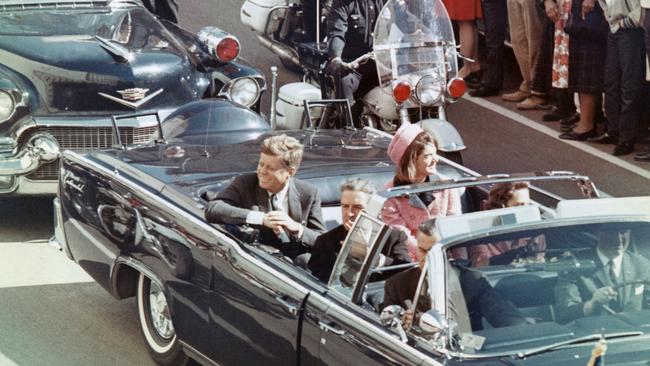
“There was a reason why Rome of Julius Caesar and Florence of the Medici were such dangerous places. Assassination was a feature, not a bug, of republican political systems. However, modern American medicine and the overblown security provided to presidents and former presidents together make it quite likely that both candidates will make it to November 5.”
I wrote those words on July 2. Eleven days later, events proved me both right – assassination is part and parcel of republican political systems – and wrong: this has ceased to be true of the US.
What happened in Butler, Pennsylvania, on the evening of July 13 is in equal measure shocking and baffling. An inch or two further to the left and the bullet that grazed Donald Trump’s ear would have penetrated his skull and very likely killed him. A slight gust of wind, a tremor of the assassin’s hand, an unexpected move by the former president – for whatever tiny reason, Trump lived to fight another day.
The shooter, Thomas Matthew Crooks, a 20-year-old man from nearby Bethel Park, was a registered Republican but had made a $US15 donation to the liberal ActBlue political action committee on the day of Joe Biden’s inauguration, when he was 17. Even more puzzling, this young man (who was barely a teenager when Trump was elected in 2016) was able to take several clear shots at the 45th president from the roof of a shed 137m away from the stage of Trump’s rally.
How did the Secret Service snipers stationed just 131m away not spot Crooks climbing into position on the roof, when at least one member of the public did see him and claimed he had warned them? It is hard to think of a good explanation.
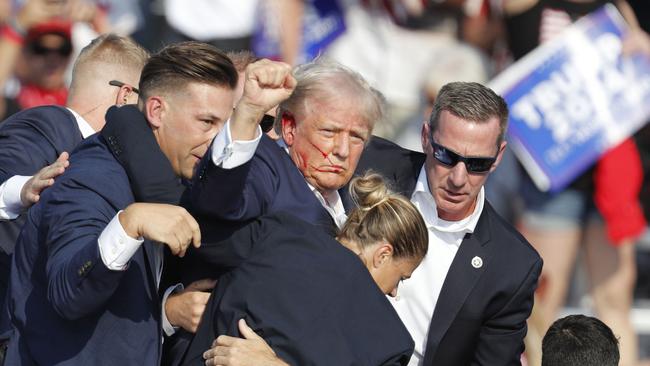
And what of the consequences? There are those who would have you believe that history is governed by vast impersonal cycles and that events such as this are mere epiphenomena, historical trivia. It is a claim as old as it is false.
“Assassination has never changed the history of the world,” declared Benjamin Disraeli, the future British prime minister, in a speech in the House of Commons a few days after the murder of president Abraham Lincoln in 1865. “Even the costly sacrifice of a Caesar did not propitiate the inexorable destiny of his country.”
Disraeli offered only two other examples as “conspicuous illustrations of this truth”. The deaths of the Prince of Orange, presumably the Dutch leader William the Silent, who was assassinated in 1584, and King Henry IV of France, who was assassinated in 1610. Both fell victim to Catholic zealots whose motivations were religious.
Disraeli implied that the protracted European wars of religion would have turned out as they did – with The Netherlands Protestant and France Catholic – regardless of whether William and Henry had lived. His assertion was as spurious as the claim that American history would have been unaffected if Trump had died on Saturday night.
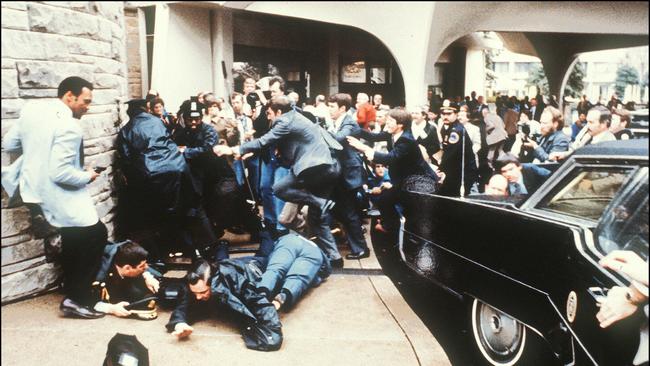
According to a very useful 2007 paper by Benjamin F. Jones and Benjamin A. Olken, there were 298 assassination attempts on national leaders between 1875 and 2004, of which 251 were serious attempts (meaning a weapon was used) and 59 resulted in the leader’s death. (The dataset excludes plots that were uncovered. It also excludes assassination attempts against opposition leaders.) In other words, only around a fifth of assassination attempts directed at kings, presidents and prime ministers in the modern era were successful.
Has there been a trend? According to the authors, “the annual rate of assassinations increased in the late 19th and early 20th century, decreased substantially during the 1940s … and has been at relatively high levels since 1950”, with the rate of assassination of national leaders rising to roughly one every two years. However, when adjusted for the total number of countries, which has risen substantially since the end of World War II, the probability of a leader being assassinated in a given year has fallen from 1 per cent to below 0.3 per cent. Weapons have become a great deal more accurate and deadly. But security is also tighter. Whether the urge to assassinate has also waned is impossible to say.
Does assassination ever change the path of history? Disraeli, as we have seen, thought not. But Jones and Olken find that “assassinations of autocrats produce(d) substantial changes in the country’s institutions”.
Mercifully, the same was not true of assassinations of democratic leaders. Transitions to democracy were “13 percentage points more likely following the assassination of an autocrat than following a failed attempt on an autocrat”. In addition, the probability that subsequent leadership transitions occurred through institutional means was also higher following the assassination of an autocrat. On the other hand, the authors found “successful assassinations lead to an intensification of small-scale conflicts relative to failed assassination attempts”.
I would go further. Although the assassination of Archduke Franz Ferdinand by the Pan-Slav nationalist Gavrilo Princip in Sarajevo on June 28, 1914, was not the sole cause of World War I, it ignited a European powder keg of imperial rivalries, arms races and radical nationalism that might otherwise have remained inert.
Conversely, it is very hard to believe that World War II would have happened as it did if Swiss theology student Maurice Bavaud had succeeded in shooting Adolf Hitler at a parade in Munich on November 9, 1938. Bavaud’s was just one of numerous plots to kill Hitler. So central was Hitler’s world view and decision-making to the war and to the Holocaust that his death at any juncture between 1933 and 1944 would surely have changed the course of history.
Everyone knows that four of 46 American presidents have been assassinated since the founding of the republic: Abraham Lincoln (1865), James Garfield (1881), William McKinley (1901) and John F. Kennedy (1963). We also live in justifiable dread of another year like 1968, when Robert F. Kennedy and Martin Luther King were assassinated.
But it is less often remembered that unsuccessful but serious attempts were made against the lives of Andrew Jackson (1835), Theodore Roosevelt (1912), Franklin D. Roosevelt (1933), Harry Truman (1950) and Gerald Ford (1975).
Of all the attempted assassinations, the most politically consequential was surely John Hinckley Jr’s attack on Ronald Reagan on March 30, 1981. A mere two months into the job at the time of the shooting, Reagan would go on to transform the US both at home and abroad.
Had Hinckley killed Reagan, George HW Bush would have become president eight years earlier. So different were Reagan and Bush as individuals that the course of history would not have been the same.
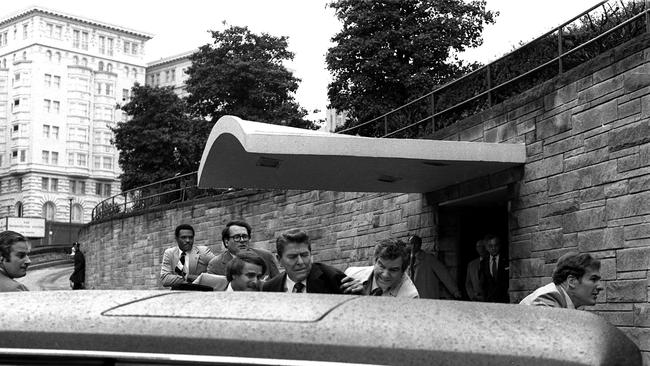
The aftermath of the attempt to kill Reagan offers some insight as to what may lie ahead this year. According to Gallup, Reagan’s approval rating surged in the wake of Hinckley’s attack from around 60 per cent to 68 per cent by May 1981. It would be surprising if there were not a similar surge of public support for Trump in the wake of Saturday’s failed assassination, especially in view of Trump’s undeniable personal courage in the heat of the moment and the success with which press photographers captured it.
True, these images have driven the debate about Joe Biden’s mental acuity off the front pages. But no one can have missed the contrast between Trump’s swift reaction to life-threatening danger and Biden’s unsteady gait in his recent public appearances.
Disraeli was wrong about assassination. Had Trump been killed on Saturday, American history would have embarked on a quite different course from the one that now seems most likely. There would have been an open and likely contested convention in Milwaukee this week. Somewhere between six and a dozen Republican governors and lawmakers would have wrangled to inherit the mantle of the fallen Trump, in a febrile atmosphere.
Meanwhile, the Democrats, their donors, and their media supporters would have found themselves on the receiving end of bitter invective from the MAGA movement. As journalist Eli Lake argues, there would have been echoes of 1968 as well as of 1963. But something still darker is easily imaginable.
“Let us not, therefore, sanction any feeling of depression,” Disraeli concluded his 1865 address, “but rather let us express a fervent hope that from out the awful trials of the last four years … the various populations of North America may issue elevated and chastened; rich in that accumulated wisdom, and strong in that disciplined energy which a young nation can only acquire in a protracted and perilous struggle.”
Amen to that part, at least.
This was originally published in The Free Press. More: thefp.com

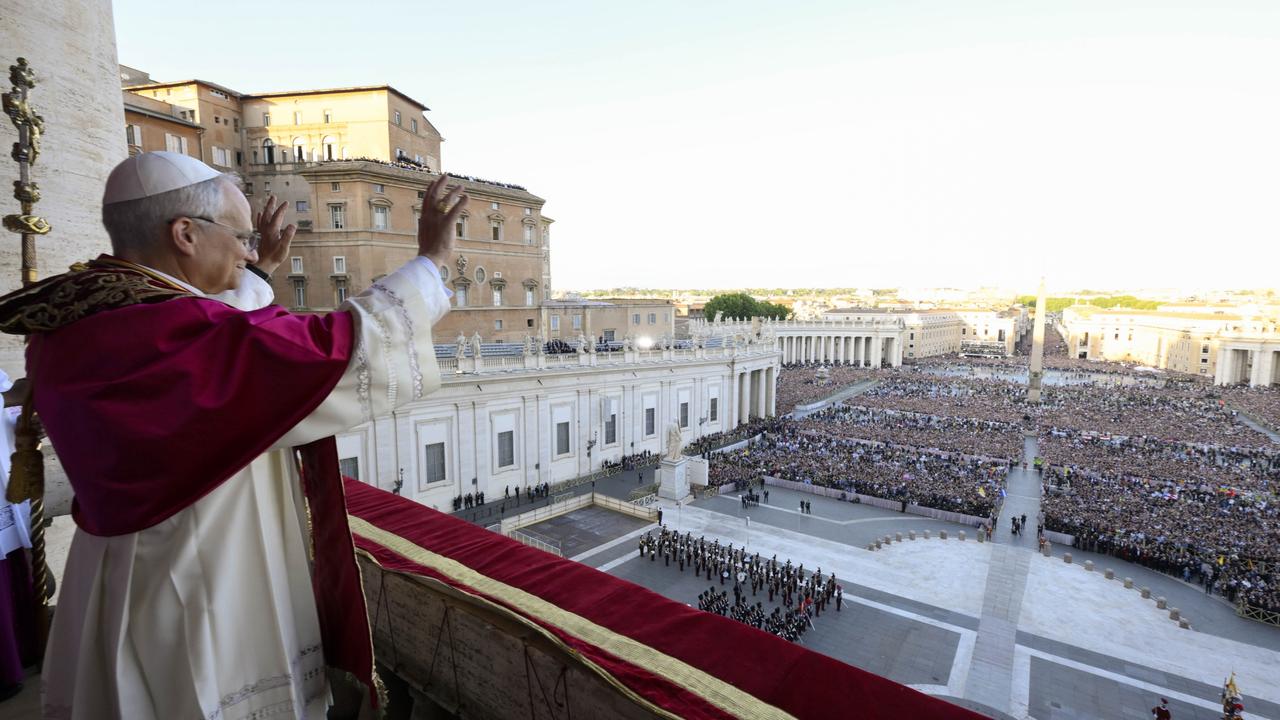

To join the conversation, please log in. Don't have an account? Register
Join the conversation, you are commenting as Logout